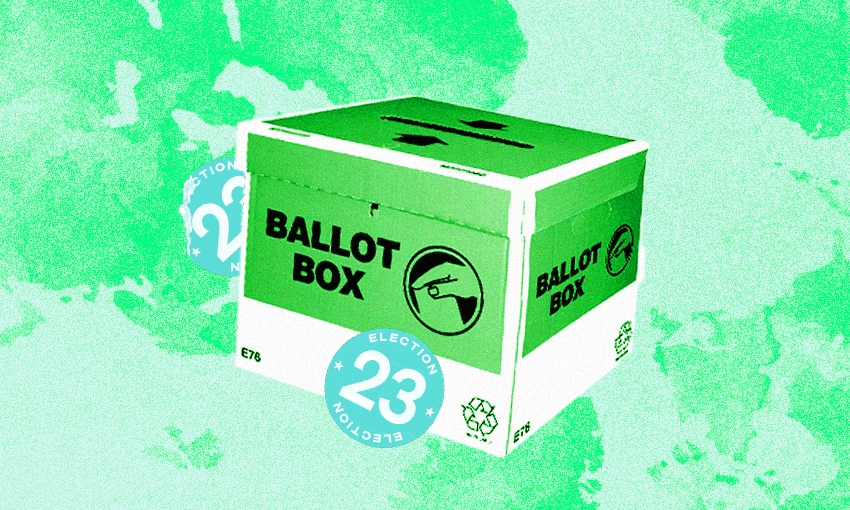For disabled voters, voting for climate is an act of trust. One I think we have to make anyway.
The conversation starts out the way I expect when I’m out being disabled in public. The guy – non-disabled – has sat down opposite me in the cafe because there was no space anywhere and I’m alone. I said it was fine and it was. He wants to introduce himself. Fine. He wants to ask about my wheelchair, about getting around in this city. OK. So far just questions that fall into the usual satisfaction-of-curiosity category.
No, I say, I don’t think this city is easily accessible. Maybe I tell him about the small number of taxis able to take a wheelchair that mean we have to plan our lives to the letter? Maybe mention the inconsistency of paving and curb cuts you have to hunt for? Maybe that for the past two years on my birthday another wheelchair user friend and I have taken the bus home together and considered it a birthday gift from the universe that one of us doesn’t have to wait in the cold alone for the next ride?
There are many choice examples and many conversations like this. I can’t remember what I say this time. Whichever answer I give him, he is sympathetic and now this seems like a mutual discussion on how to get change. He mentions the cycleway. Terrible idea to have one around here, he thinks, particularly for disabled people.
I see his point about the difficulty of crossing a bike lane safely in a wheelchair. I see his point about limited space for mobility car parks. But I’m pro-planet, pro-climate action and this is one part of changing the ecosystems of our cities. It is not the whole picture but part of it. I clarify that even though I can’t use them, I’m pro-cycleway. The conversation stalls like a car with a drained battery. He gets up and walks out. I blink, sip my coffee, unrecruited, and realise he never shared his name.
I have failed to fit into the disabled archetype he needs.The abrupt end to this conversation is a failure of nuance. What frustrates me is I want the conversation about accessible cities he was trying to have. I want action for our climate too. I also want disabled dignity. In my life these things can’t simply be pitted against each other; they belong together.
I have seen this happen before. Disabled people asking to be considered in political discussion only to find their needs and political views simplified to fit either side of the debate. I have seen us portrayed as victims of moving toward a less car dependent world as well as seen our reliance on cars being under-acknowledged and similarly the saviours of plastic straws. As we did away with Covid restrictions, the impact on our lives was underplayed while those of us who couldn’t mask for medical reasons were vilified and lumped in with those people calling for freedom for freedom’s sake.
It is frustrating to find your daily needs being righteously debated by people who can choose to opt in and out of the fight for accessibility overall as on an issue by issue basis. It puts disabled people in a reactionary position, reminding the systems around us to remember us but unable to set an agenda.
Our electoral system itself has accessibility issues, privacy issues around voting independently as a blind person on a paper ballot, physical access barriers to polling stations, the need for more accessible information about voting processes, through to a small number of disabled members of parliament in our representative democracy. Without being seen as a strong constituency our needs are earmarked “nice-to-have”.
The failure to centre accessibility as a mainstream political issue means that disabled people become convenient illustrative examples of “good” and “bad” on any given issue rather than people with complex and competing needs. If we had access we could have these conversations.
In this reality, where access is consistently under-prioritised, I can see why disabled people who have voting access might look to policies that meet their immediate survival needs rather than long term change. I can see where this might look like not including climate change as the issue to vote on. For disabled voters, voting for climate is an act of trust. One I think we have to make anyway.
I will be voting for climate because disabled people are already being hit by the impacts of climate change. One clear example for me is the man whose wheelchair was damaged in the Auckland flooding and then found himself reclassified under Ministry guidelines, no longer qualifying for a replacement. I worry that disabled people will continue to face a double struggle like this as we continue to be left out of thinking around the climate crisis. In the wake of climate disasters, we will also have to fight for our basic disability needs to be met.
Those we vote in on this basis will need to remember this, remember us and the diversity of our lives in the action they take.

